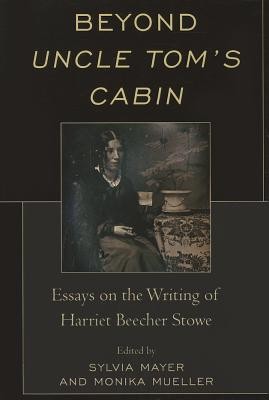
- We will send in 10–14 business days.
- Author: Sylvia Mayer
- Publisher: Fairleigh Dickinson University Press
- ISBN-10: 1611476186
- ISBN-13: 9781611476187
- Format: 15.2 x 22.6 x 2 cm, minkšti viršeliai
- Language: English
- SAVE -10% with code: EXTRA
Reviews
Description
Ever since feminist scholarship began to reintroduce Harriet Beecher Stowe's writings to the American Literary canon in the 1970s, critical interest in her work has steadily increased. Rediscovery and ultimate canonization, however, have concentrated to a large extent on her major novelistic achievement, Uncle Tom's Cabin (1852). Only in recent years have critics begun to focus more seriously on the wide variety of her work and started to create knowledge that broadens our understanding. Beyond Uncle Tom's Cabin: The Writings of Harriet Beecher Stowe, edited by Sylvia Mayer and Monika Mueller, shows that during her long writing and publishing career, Stowe was a highly prolific writer who targeted diverse audiences, dealt with drastically changing economic, commercial, and cultural contexts, and wrote in a diversity of genres. Reflecting a recent trend to move Stowe's other texts to the fore, the essays collected in this volume thus go beyond the critical focus on Uncle Tom's Cabin. They focus on several of Stowe's other texts that have also significantly contributed to American literary and cultural history, among them her New England novels, her New York City novels, and her fictional writings on religious differences between Europe and the United States. The essays in the first part of Beyond Uncle Tom's Cabin concentrate on Stowe's language use, her rhetoric and choices of narrative technique and style, while the essays in the second part concentrate on thematic issues such as the representation of race, ethnicity, and religion, her participation in the emerging environmentalist movement, and Stowe's response to major economic shifts after the Civil War.
EXTRA 10 % discount with code: EXTRA
The promotion ends in 22d.11:33:43
The discount code is valid when purchasing from 10 €. Discounts do not stack.
- Author: Sylvia Mayer
- Publisher: Fairleigh Dickinson University Press
- ISBN-10: 1611476186
- ISBN-13: 9781611476187
- Format: 15.2 x 22.6 x 2 cm, minkšti viršeliai
- Language: English English
Ever since feminist scholarship began to reintroduce Harriet Beecher Stowe's writings to the American Literary canon in the 1970s, critical interest in her work has steadily increased. Rediscovery and ultimate canonization, however, have concentrated to a large extent on her major novelistic achievement, Uncle Tom's Cabin (1852). Only in recent years have critics begun to focus more seriously on the wide variety of her work and started to create knowledge that broadens our understanding. Beyond Uncle Tom's Cabin: The Writings of Harriet Beecher Stowe, edited by Sylvia Mayer and Monika Mueller, shows that during her long writing and publishing career, Stowe was a highly prolific writer who targeted diverse audiences, dealt with drastically changing economic, commercial, and cultural contexts, and wrote in a diversity of genres. Reflecting a recent trend to move Stowe's other texts to the fore, the essays collected in this volume thus go beyond the critical focus on Uncle Tom's Cabin. They focus on several of Stowe's other texts that have also significantly contributed to American literary and cultural history, among them her New England novels, her New York City novels, and her fictional writings on religious differences between Europe and the United States. The essays in the first part of Beyond Uncle Tom's Cabin concentrate on Stowe's language use, her rhetoric and choices of narrative technique and style, while the essays in the second part concentrate on thematic issues such as the representation of race, ethnicity, and religion, her participation in the emerging environmentalist movement, and Stowe's response to major economic shifts after the Civil War.


Reviews